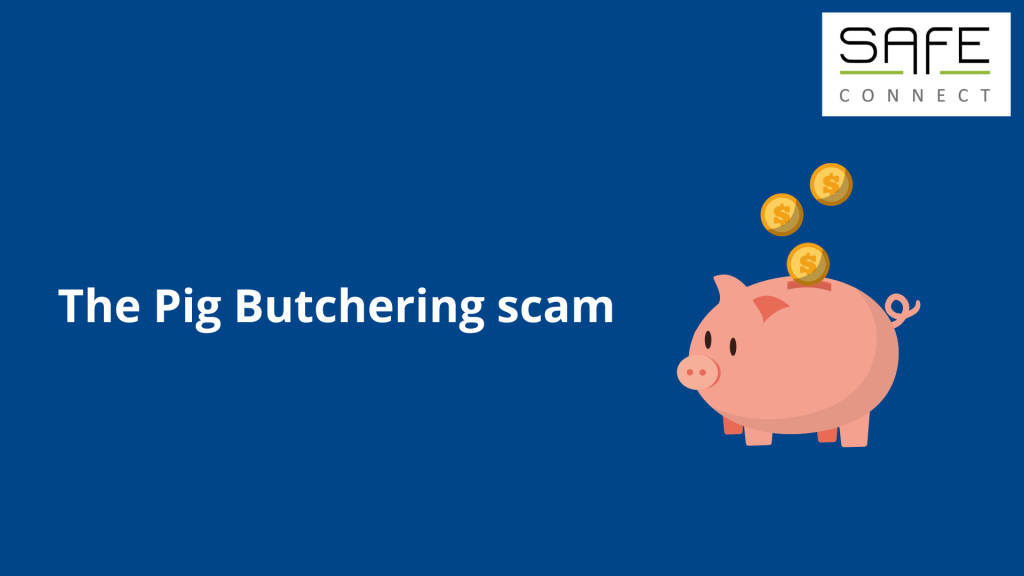
Pig Butchering: fooled, plundered, ruined
Home » Security » Pig Butchering: fooled, plundered, ruined
Shady characters online pull off countless tricks to trap unsuspecting victims. One of the most devious and disturbing methods is so-called ‘pig butchering’. In this article, we explain what this scam entails, how it works, and how to protect yourself from this form of fraud.
What is ‘pig butchering’ and how does it work?
‘Pig butchering’, a term as sinister as it is striking. It describes a scam technique that revolves around manipulation. Not a quick extortion, not a brutal crackdown, but a psychological fattening. Everything starts subtly. A message here, a pat on the back there. Weeks, sometimes months, are spent building a bond that feels like pure gold.
And then, as if it were the most normal thing in the world, the conversation turns to money. A golden opportunity, an exclusive project, an investment too good to pass up. Usually in the form of crypto. At first, it’s about a small amount, a test. Everything seems to be running smoothly. You gain more confidence and choose to raise the stakes. Until the account is looted and the scammer disappears from the radar. All gone. All at once. And then you’re stuck with nothing.
A notable example
A notable example of a pig butchering scam involves Shan Hanes, the former CEO of Heartland Tri-State Bank in Kansas, US. In 2023, Hanes embezzled $47.1 million from his own bank to invest in what he thought were legitimate crypto transactions. However, he fell victim to a pig butchering scam, in which scammers convinced him to transfer large sums of money to fraudulent crypto platforms. These actions led to the bank’s bankruptcy. In August 2024, Hanes was sentenced to 24 years in prison for his role in this fraud.
This case highlights how even experienced bankers can fall prey to such sophisticated scams. It highlights the importance of vigilance and thorough research before investing in crypto projects or other financial offerings.
Psychological manipulation
What makes this scam particularly insidious is the emotional manipulation involved. Victims are often bombarded with declarations of love or other forms of emotional blackmail. Sometimes the scammer claims to be in a difficult situation, such as being trapped in a dangerous environment or urgently needing money for a medical emergency. This makes it extra difficult for victims to say no or break off the interaction.
Where do these scams come from?
While the exact origins of ‘pig butchering’ scams are difficult to trace, they are often linked to organised crime groups operating from regions where law enforcement is less stringent. These groups use sophisticated techniques and infrastructures to launder and move money, often through hard-to-trace cryptocurrencies such as Tether.
How can you protect yourself?
The most important thing to remember is that it’s best to always be vigilant in online interactions. Especially when someone you don’t know personally suddenly starts talking about investments or money matters. Some tips to protect yourself:
1. Be wary of unfamiliar contacts: Whether through social media, a dating site, or email, always be sceptical when a stranger contacts you.
2. Check the information: If someone claims they have made big profits from a particular investment, do your own research before putting money into anything.
3. Trust your intuition: If something doesn’t feel quite right, it is often a sign that something is wrong. Trust your instincts and don’t be afraid to break contact.
4. Don’t share personal information: Never give your passport, bank details, or other sensitive information to someone you don’t fully trust.
5. Ask for help: If you think you are being targeted by a scam, do not hesitate to seek help from friends, family, or agencies such as the police.
With Awareness Training, you will protect your colleagues from all types of Phishing attacks. Schedule a no-obligation consultation with our specialists today.
Discuss your solution